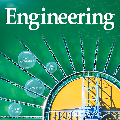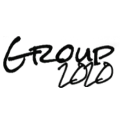Modern society is diverse, multicultural, and multifaceted. Because of these characteristics, we are currently observing an increase in the debates about equity, diversity, and inclusion in different areas, especially because several groups of individuals are underrepresented in many environments. In computer science and software engineering, it seems counter-intuitive that these areas, which are responsible for creating technological solutions and systems for billions of users around the world, do not reflect the diversity of the society to which it serves. In trying to solve this diversity crisis in the software industry, researchers started to investigate strategies that can be applied to increase diversity and improve inclusion in academia and the software industry. However, the lack of diversity in computer science and related courses, including software engineering, is still a problem, in particular when some specific groups are considered. LGBTQIA+ students, for instance, face several challenges to fit into technology courses, even though most students in universities right now belong to Generation Z, which is described as open-minded to aspects of gender and sexuality. In this study, we aimed to discuss the state-of-art of publications about the inclusion of LGBTQIA+ students in computer science education. Using a mapping study, we identified eight studies published in the past six years that focused on this public. We present strategies developed to adapt curricula and lectures to be more inclusive to LGBTQIA+ students and discuss challenges and opportunities for future research
翻译:由于这些特点,我们目前正在观察关于公平、多样性和包容的不同领域的辩论增加,特别是因为若干群体在很多环境中的代表性不足。在计算机科学和软件工程方面,似乎反直觉的是,这些领域负责为全世界数十亿用户创造技术解决方案和系统,但并不反映它所服务的社会的多样性。在试图解决软件行业的这一多样性危机时,研究人员开始调查可以用来增加多样性和改善学术界和软件行业包容性的战略。然而,计算机科学和相关课程,包括软件工程等缺乏多样性仍然是一个问题,特别是在考虑某些特定群体时。例如,男女同性恋、双性恋、双性恋、变性者和双性恋者加学生在融入技术课程方面面临若干挑战,尽管目前大多数大学的学生都属于Z代,而Z代被描述为对性别和性生活的各个方面持开放态度。在本研究中,我们打算讨论关于将男女同性恋、双性恋、双性恋、双性恋和变性者加学生纳入计算机科学教育的出版物状况。然而,我们通过一项绘图研究,确定了未来八年中的学生学习的包容性学习战略。</s>




